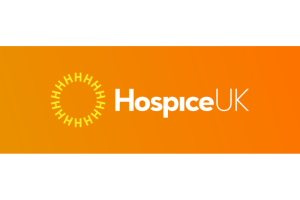Liz Blacklock, Chief Executive of the National Association of Care and Support Workers (NACAS), challenges the system’s focus on box-ticking qualifications — and makes the case for national, professionalised training that actually keeps care workers in the sector.
Every event I go to, we end up talking about the same things — recruitment, retention, training, values. And I come away wondering how long we’re going to keep having these conversations without real change. We know what’s needed. The problem is, the structure and support just aren’t there. We’re losing good people — not because they’ve stopped caring, but because they can’t see how to build a future in a sector that feels fragmented and unclear.
When we, as employers, talk to our teams about training, do we really take the time to have proper conversations? Are we helping people see what they’re good at and where they could go? Or are we just pointing them towards a Level 2, 3 or 4 because that’s what’s expected? If we want people to see care as something worth sticking with, we need to do more than hand out qualifications. We need to help people see their strengths and feel proud of what they achieve.
I do sometimes wonder what actually happens in some of these training programmes. We’ve all met people who’ve got the certificate, but when it comes to something as important as safeguarding, they’re unsure. And that’s not their fault — it shows where the system isn’t working as it should. Training should give people confidence and knowledge, not just a piece of paper.
A big part of this is making sure we explain why we do things, not just what to do. When people understand the reasons behind actions, they work with more confidence and give care that’s thoughtful as well as safe. It helps them feel part of something bigger. It helps them see that care can be a proper career, not just a stopgap.
I often think back to the old ENB post-registration nursing courses (yes, I know I’m showing my age here!). They were the same wherever you trained, and people respected what they stood for. That’s what we’re missing now. We need a national training programme that means something — that people feel proud to have done and that’s recognised wherever they work.
The gaps are plain to see. There’s no clear national path linking training to career progression. A lot of what’s out there depends on individual employers, and not all have the resources to offer more than the basics. And we’re still battling old ideas that care is low-skilled, when in reality it takes knowledge, judgement, resilience, and emotional intelligence. No wonder people leave when the career path doesn’t reflect the reality of what they do.
At NACAS, working with IHSCM, we’re trying to change that. We want care staff to feel recognised, with the chance to develop if that’s what they want. And if someone’s happy doing the essentials to give safe, kind care, that’s absolutely fine. It doesn’t make their role any less valuable. We need good people at all levels, people who care about what they do. What matters is that the training they get means something and supports them in their work.
That’s why I believe professionalisation matters. It’s hard to explain to people who haven’t seen what’s missing — a bit like that jigsaw piece you don’t notice is gone until it fits back in. Registration isn’t about adding red tape. It’s about filling that gap so people see care staff for what they are: skilled, essential, and deserving of proper support.
If we want people to stay — young people or anyone else — we have to offer more than just a job. We need to offer something they can feel part of and believe in. It’s not enough for government to say they “understand the role” of care staff. I think all the evidence points the other way. This is a case where actions really do speak louder than words. I’m confident Baroness Casey will see this through the commission. The question is whether the findings will finally lead to action that helps the system — and everyone in it — for the future.







